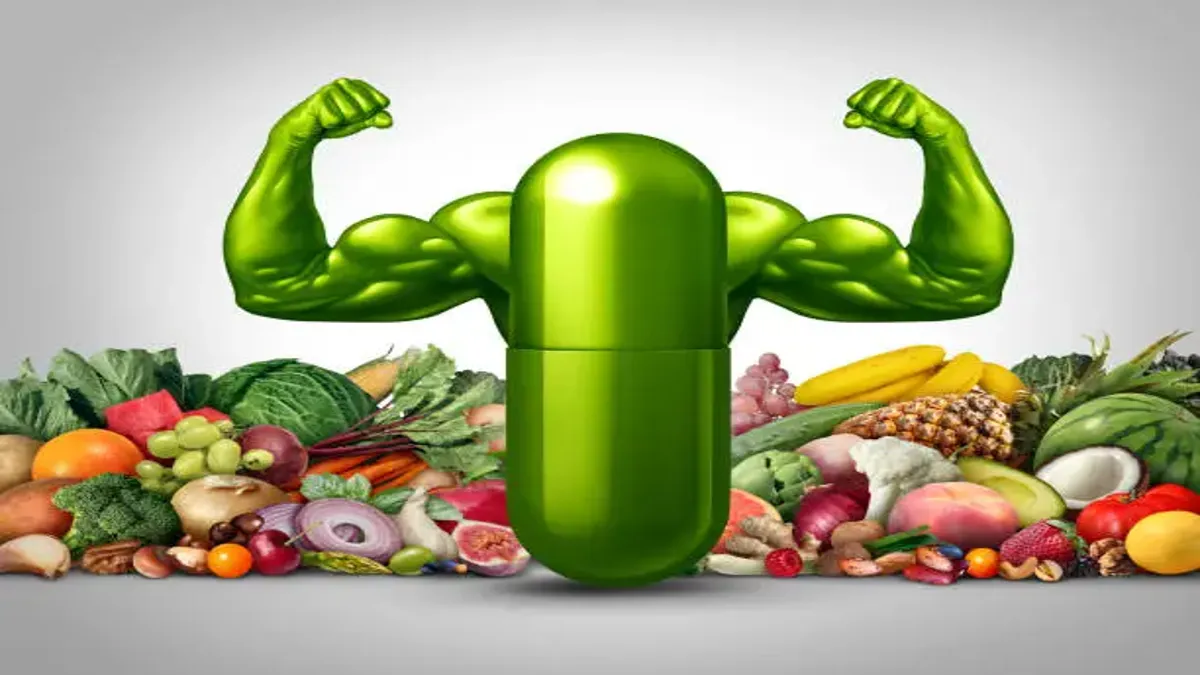Testosterone is more than just a “male hormone.” It plays a vital role in muscle growth, energy, mood, libido, and even bone strength in both men and women. Yet, due to factors like age, stress, poor nutrition, and a sedentary lifestyle, many people have lower-than-optimal testosterone levels.
Sometimes medical treatment is necessary for low testosterone, but natural ways like a balanced diet, exercise, and supplementation can help maintain healthy levels.
Let’s explore natural ways to improve testosterone levels!
Understanding Testosterone and Hormonal Balance
Testosterone—a hormone—is primarily produced in the testes in men. It is also produced in smaller amounts by the ovaries and the adrenal cortex in women. The brain controls the production of this hormone through the hypothalamus and the pituitary gland. The testosterone hormone production is stimulated by getting signals from the brain.
Several factors can negatively affect the production of this hormone, such as:
- Unhealthy diet—low in protein, healthy fats, and essential nutrients.
- Age factor—after 30, the levels drop by 1% every year.
- Sedentary lifestyle—prolonged periods of inactivity and sitting.
- Sleep deprivation—7 to 9 hours of quality sleep per night.
- Chronic stress—high cortisol can lower testosterone.
- Medical conditions—obesity, diabetes, and hormonal disorders.
The good news? Targeted changes in diet, exercise, and supplementation can help support optimal testosterone production. A high-quality multivitamin supplement with a comprehensive blend of vitamins and minerals—like Activit—can help men meet their nutritional needs for hormonal health, while also supporting women’s overall well-being.
Foods That Naturally Support Testosterone
For low testosterone treatment, you can consider the following foods:
- Protein-rich Foods
Protein provides building blocks for muscles, skin, blood, and cartilage. It is essential for muscle repair and hormone synthesis.
Natural Sources of Protein
- Animal sources include beef, eggs, chicken, and fatty fish (salmon and tuna).
- Plant-based sources include lentils, chickpeas, quinoa, and tofu.
- Healthy Fats
Healthy fats (saturated and monounsaturated fats) are building blocks for steroid hormones like testosterone, estrogen, and progesterone.
Natural Sources of Healthy Fats
- Animal sources include eggs and fish (sardine, herring, and tuna).
- Plant-based sources include avocados, olives, walnuts, coconut, almonds, and pumpkin seeds.
- Zinc and Magnesium
Zinc and magnesium are significantly linked to testosterone production and regulation. It is directly involved in the production of testosterone in Leydig cells of the testes.
Natural Sources of Zinc and Magnesium
- Zinc-rich foods include oysters, beef, chicken, pumpkin seeds, chickpeas, beans, yogurt, and dark chocolate.
- Magnesium-rich foods include spinach, kale, beans, brown rice, quinoa, bananas, fish, and avocados.
- Vitamin D3
Vitamin D performs functions of a hormone in your body and is a crucial testosterone precursor.
Natural Sources of Vitamin D3
- Food Sources include fatty fish, fortified dairy, mushrooms, and egg yolks.
- Sunlight exposure is also one of the best natural ways to boost vitamin D levels.
- Antioxidants and Polyphenol Foods
Oxidative stress can damage cells involved in testosterone production.
- Protective foods include berries, pomegranates, dark chocolate, and green tea.
Exercise Strategies for Boosting Testosterone
For boosting testosterone naturally, try incorporating these exercises into your routine.
- Strength Training
Strength training or weight training includes squats, bench presses, and deadlifts. These exercises help your body stimulate testosterone regulation and release.
Strength trainers suggest 3 to 4 sessions per week with moderate to heavy loads.
- High-Intensity Interval Training (HIIT)
HIIT includes short bursts of intense exercise followed by recovery or rest periods. This training has been found more effective for testosterone support than long, steady-state cardio sessions.
- Overtraining
Excessive training and workouts can raise cortisol levels—a stress hormone—which works against testosterone. Therefore, aim for a balanced and regular exercise routine.
- Sleep and Stress Management
Testosterone peaks during deep sleep, so aim for 7–9 hours nightly. Reduce stress and cortisol with meditation, yoga, deep breathing, or time in nature.
Supplements for Natural Testosterone Support
When diet and exercise are in place, supplements can help fill nutritional gaps and support healthy hormone levels.
Multivitamins with Zinc, Magnesium, Vitamin D, and B-Vitamins
A high-quality multivitamin with a comprehensive formulation that includes all essential vitamins and minerals can help support an overall healthy hormonal system.
To support this need, consider Activit — a multivitamin supplement designed to help optimize hormonal health, energy, and recovery. It provides zinc (as zinc bisglycinate), magnesium (as magnesium malate), vitamin D₃ (as cholecalciferol), and CoQ10, all in bioavailable forms and optimal amounts for effective absorption.
Ashwagandha
According to many research studies, ashwagandha acts as an adaptogenic herb and reduces stress and potentially boosts testosterone levels.
Fenugreek
Fenugreek helps reduce the enzymes that convert testosterone into estrogen, thereby maintaining healthy hormone levels.
D-Aspartic Acid
An amino acid that can temporarily support luteinizing hormone (LH) secretion, which stimulates the testes to produce testosterone.
Omega-3 Fatty Acids
Support cell membrane health, reduce inflammation, and improve hormone function.
Coenzyme Q10
CoQ10 is an important element of the electron transport chain in mitochondria, helping your body efficiently produce energy at the cellular level.
When to See a Doctor…
Natural testosterone support works best for those with mild declines due to lifestyle or nutrition. However, if you experience symptoms like fatigue, muscle loss, or persistent low libido, you should consult your healthcare provider. Also, avoid self-supplementation in high doses without professional guidance.
To Sum Up
Maintaining healthy testosterone levels isn’t about magic food, exercise, or pills—it’s about combining all three in a way that suits your personal needs. Low testosterone treatment includes a nutrient-rich diet, regular strength training, adequate rest, and strategic supplementation, supporting hormonal health.
For those looking to supplement with all essential nutrients in bioavailable forms and optimal dosages, Activit multivitamin can be a valuable option that helps ensure the body has the building blocks required for energy, strength, and hormonal balance.

